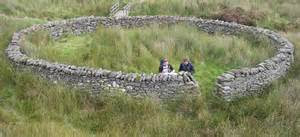Mother Teresa used to tell an anecdote about suffering: "I never forget one day when I met a lady
who was dying of cancer and I could see the way she was struggling with that
terrible pain. And I said to her: ‘You know this is but the kiss of Jesus, a sign
that you have come so close to Him on the cross that He can kiss you.’ And she joined her hands together and said,
'Mother Teresa, please tell Jesus to stop kissing me'."

Mother Teresa explained her story by saying, "This is
the joy of suffering, the kiss of Jesus. Do not be afraid to share in that joy
of suffering with Him because He will never give us more suffering than we are
able to bear." When she herself struggled with being overwhelmed at times,
Mother Teresa also said, "I know God won't give me anything I can't
handle, but I just wish he didn't trust me so much!"
No one in his right mind wishes to suffer. But in this broken and sinful world,
suffering is an inevitable lot. Mother
Teresa taught us to embrace it anyhow with joy believing that we are suffering
with Jesus. Hence, we share in Jesus’
suffering which is redemptive.
Today, we contemplate Jesus’ passion and death not in order
to glorify suffering as such. Suffering is brought about by sin; nothing
glorious in that. But in contemplation of his passion, we discern the greatness
of the heart of Jesus and the depth of God’s love for us. Our liturgical readings today allow us to
see, not so much the horrendous face of suffering itself, but the magnanimity
of Jesus’ heart as He fulfills his self-sacrificing mission of saving all of
us. Jesus’ magnanimity is seen in his humility, obedience, and trust in the
Father.
Humility. Today’s liturgy begins with the commemoration
of Jesus’ triumphant entry into the city of Jerusalem. The reading (Mt 21:1-11), portrays Jesus
entering the city riding on a donkey. The symbolic meaning of the donkey shows
us how Jesus the Christ won his victory over sin and evil:
through humility. He could have entered majestically with horses and
chariots as the kings of their times did. No. He chose to ride a donkey which
was a useful beast of burden, but not a glorious and impressive one.
And that's exactly like the Christian virtue
of humility, by which we lower ourselves in order to
help raise up others, to serve them. And this is
what Jesus did, as St. Paul tells us in today's second reading (Phil
2:6-11): “Though he was in the form of
God, did not regard equality with God something to be grasped. Rather, he
emptied himself, taking the form of a slave, coming in human likeness... he
humbled himself, becoming obedient to the point of death, even death on a
cross.” While the Messiah was
expected by all to come and rule with power and might, Jesus chose to be a
suffering Messiah enduring all the pains and humiliations done against him. By way of humility, Jesus raised us all up.
Obedience. The sin of the first parents was disobedience
to God. Adam and Eve’s defiance shattered
God's beautiful plan. It let loose the
scourge of evil, and the power of sin took over earthly society. No one could
liberate oneself from the slavery of sin. Only the Savior, Jesus Christ. And through his passion, death, and
resurrection, Jesus reversed the disobedience of original sin by obeying
his Father's will. In the Garden of Gethsemane, Jesus agonized over his impending
passion and death as he prayed: “My Father, if it is possible, let this cup
pass from me; yet, not as I will, but as you will.”
The long reading on the Passion of our Lord (Mt 26:14—27:66)
underscores Jesus’ obedience to the Father in spite of all the devil's attempts
to foil his saving mission. All the sufferings of Jesus—the pain of betrayal
and abandonment by close friends, the false accusations and
condemnation, the humiliation, the scourging and crowning with thorns, the
torture of crucifixion—were the devil's attempts to get Jesus to say
"no" to his Father, just as he had gotten Adam and Eve to say
"no." But Jesus remained obedient to the Father even unto his
death. Jesus’ submission to the will of
the Father reversed mankind’s disobedience.
Trust. Those who were mocking our crucified Lord
said: “He trusted in God; let him deliver him now if he wants him. For he said,
‘I am the Son of God.’” This was perhaps the greatest test of Jesus’ trust in
the Father. When he was nearing his last
breath, the Father was silent, tolerant of all Jesus had suffered; the Father
seemed to have abandoned him as he hang on the cross bearing the sinfulness of
mankind. So, in a loud voice, Jesus
cried out: “My God, my God, why have you forsaken me?” This was perhaps the
darkest hour in all of Jesus’ life. But still Jesus surrendered everything to
the Father. When even his own human understanding could no longer fathom the
depth of the mystery of his own death, Jesus turned to the Father with complete
trust. Just before Jesus took his last
breath, he cried out: “Father, into your hands, I commit my spirit” (Lk 23:46).
As we contemplate the passion of our Lord, let us see beyond
the bruises, gaping wounds and the humiliations that our Lord endured. Let us
see not just the suffering of Jesus but precisely what made his suffering
meaningful for us—his great love.
Indeed, as Mother Teresa mentioned, we can speak of “the joy of
suffering” with Jesus; it is when we embrace our own share of suffering with
magnanimity of heart shown in our humility, obedience, and total trust in God.




